Basic Addition Extra Challenge Math Worksheets for 6-Year-Olds
8 filtered results
-
From - To
Introduce your 6-year-olds to the world of fun learning with our Basic Addition Extra Challenge Math Worksheets! Specifically designed to enhance young minds, these worksheets focus on improving basic addition skills through engaging, creatively crafted problems. Perfect for early learners, each worksheet presents a unique set of challenges aimed at boosting confidence and sharpening mathematical abilities. These printables are ideal for supplementing classroom instruction or offering an extra challenge at home. Explore and download today for a head start on mastering primary math concepts in an enjoyable, stress-free way. Make learning an adventure with Kids Academy!
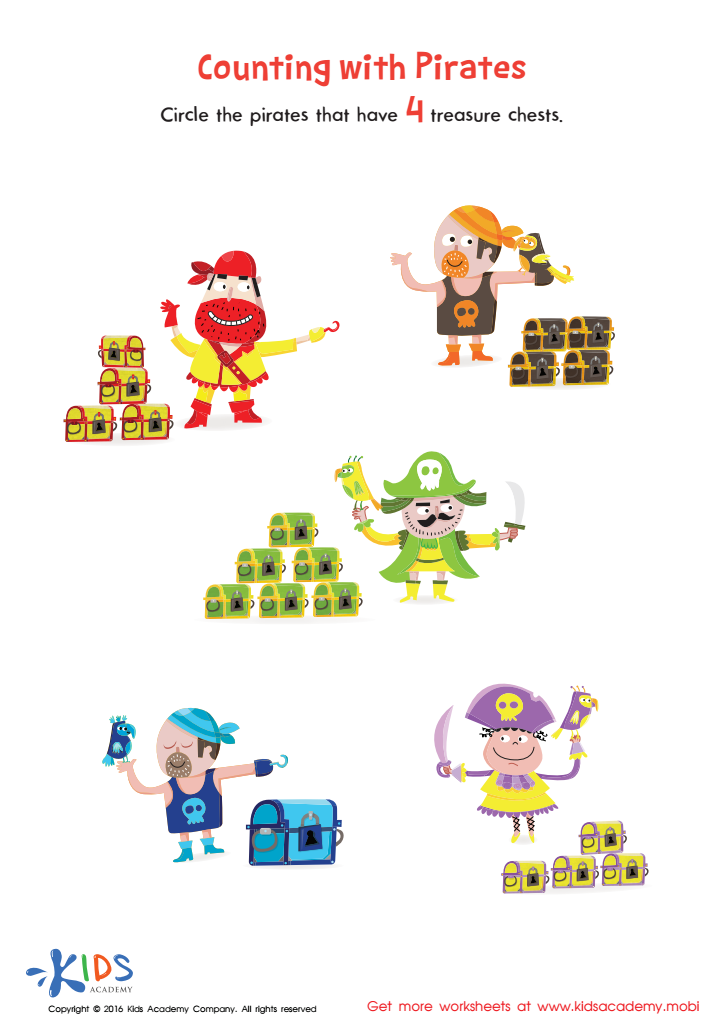

Counting With Pirates Worksheet
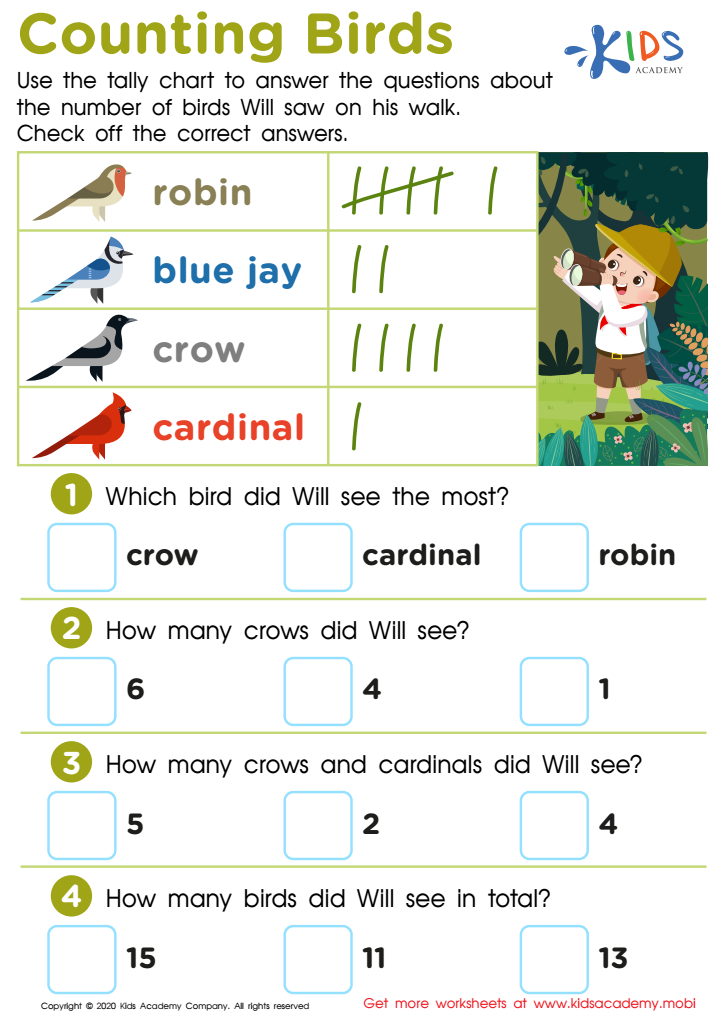

Counting Birds Worksheet
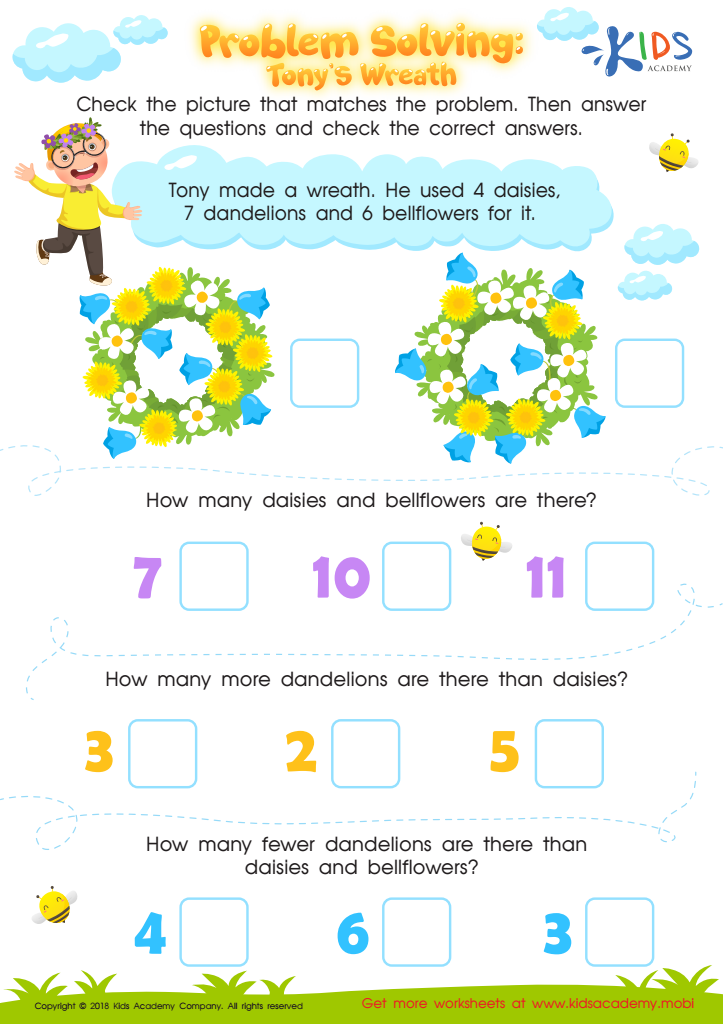

Problem Solving: Tony's Wreath Worksheet
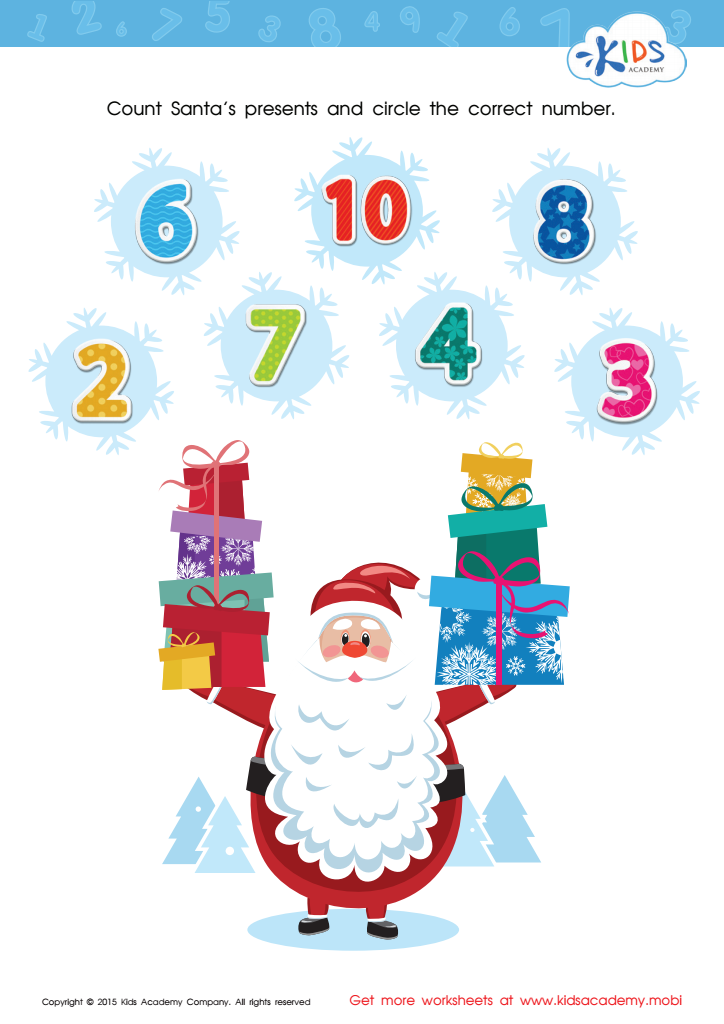

Count Santa's Presents Worksheet
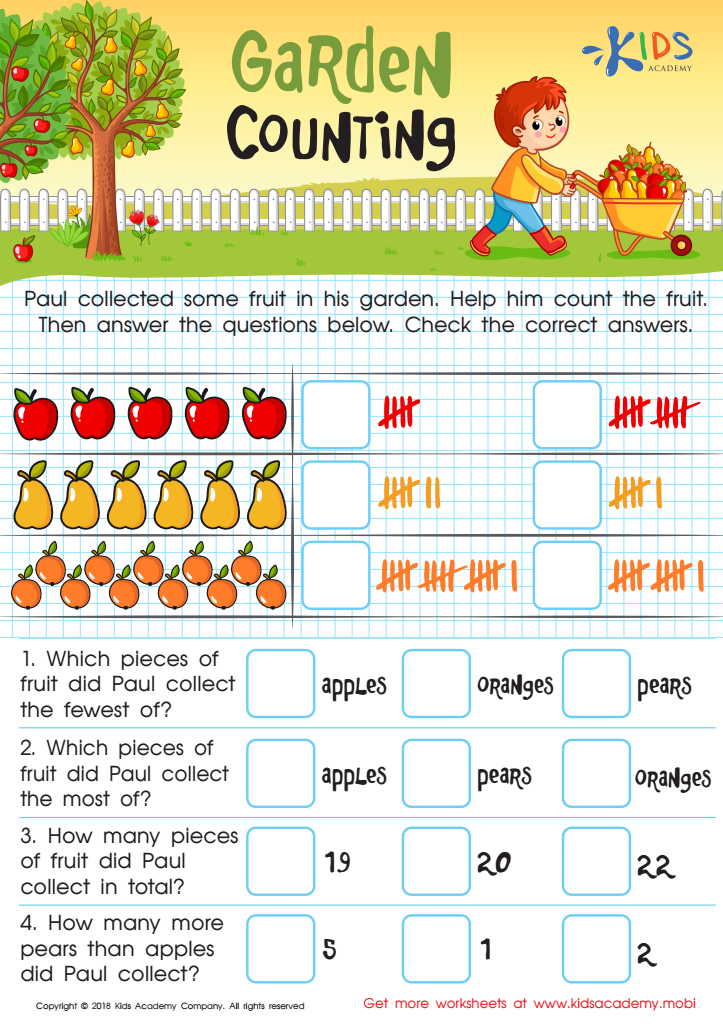

Garden Counting Worksheet
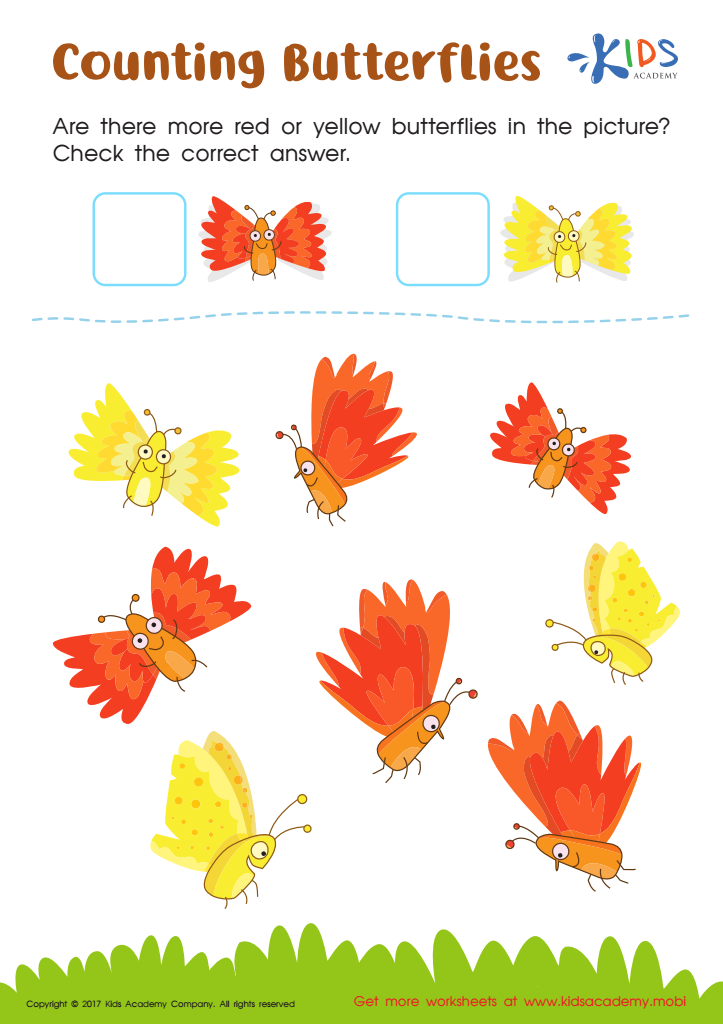

Counting Butterflies Worksheet
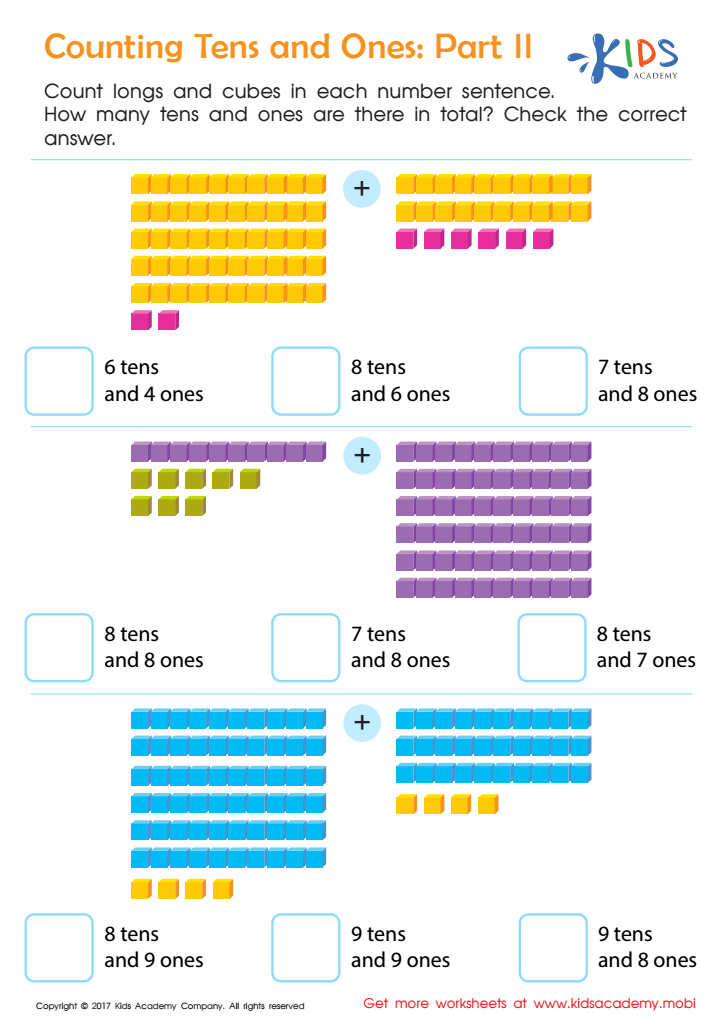

Counting Tens and Ones: Part 2 Worksheet
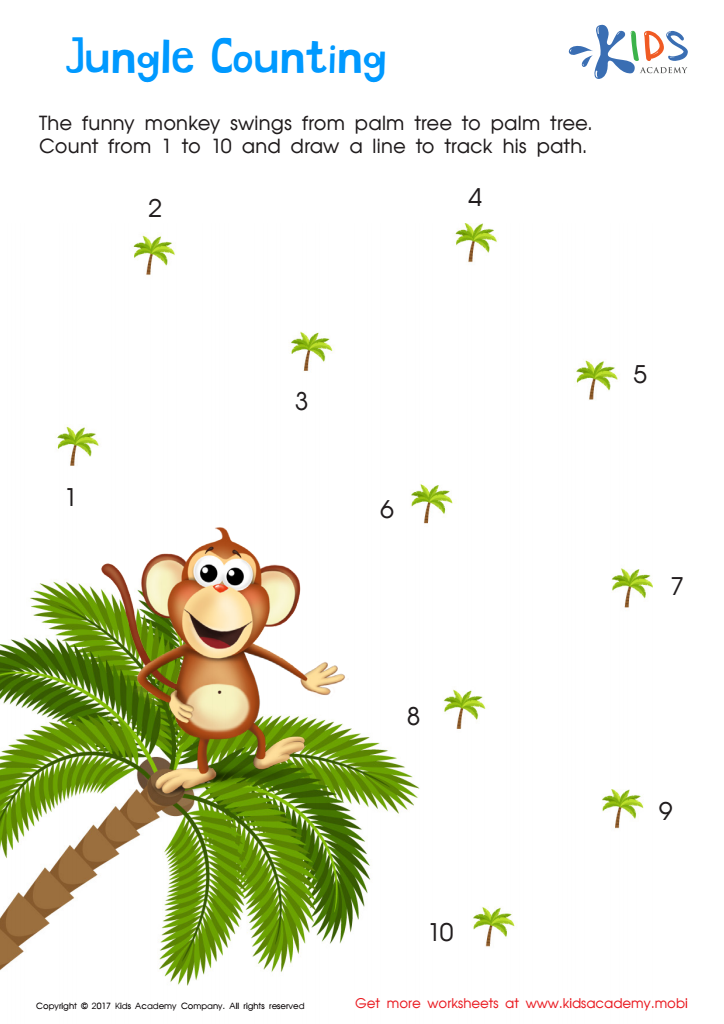

Jungle Counting Connect Dots Worksheet
Parents and teachers should prioritize Basic Addition Extra Challenge Math for 6-year-olds because it lays a critical foundation for their overall mathematical development and cognitive growth. At this age, children's brains are highly receptive to new information, and engaging them in additional math challenges helps reinforce and augment the core skills they are just beginning to learn. When young learners are exposed to extra addition challenges, they enhance their number sense, improve problem-solving abilities, and develop stronger logical thinking skills.
Moreover, these challenges foster a sense of achievement and build confidence. When children successfully navigate more complex problems, their self-esteem flourishes, encouraging a positive attitude towards math and learning in general. This is vital as early academic confidence often sets the trajectory for future academic endeavors.
Additionally, instilling a strong mathematical foundation at an early age helps bridge potential gaps that can widen over time if left unaddressed. Early math proficiency also correlates with better performance in other subjects, as math is inherently linked to various cognitive processes such as memory and attention.
Furthermore, engaging in math activities together allows parents and teachers to understand and track children’s progress, making it easier to provide necessary support and tailor learning experiences to individual needs. In essence, prioritizing extra math challenges prepares children for long-term academic and real-life success.
 Assign to My Students
Assign to My Students




















